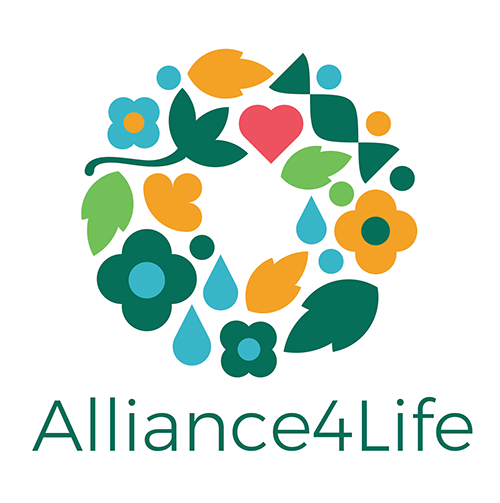
Accelerating Technology Transfer for Enhanced Health Research Results Implementation in Central and Eastern Europe
Alliance4Life (A4L), a consortium of twelve leading health research institutions and universities across eleven EU Member States in Central and Eastern Europe (CEE), has released guidelines to foster technology transfer (TT) and accelerate the translation of health research outcomes into tangible societal benefits. Through the A4L_ACTIONS project, Alliance4Life is making a significant contribution to closing the health research and innovation (R&I) gap in Europe. The initiative focuses on developing robust regional biotech and biomedicine ecosystems and fostering collaboration to bridge the industry-academia gap.
These guidelines are based on the collective experience of A4L members gathered over the years of building a progressive institutional culture and exchanging best practices. A4L has spearheaded initiatives such as creating a database of industrial collaborations in CEE, hosting dedicated training sessions for technology transfer specialists, and organizing multiple mini-conferences and trigger events featuring speakers from industrial sectors. The results of A4L's efforts have been disseminated both at the national and EU levels. These activities have strengthened the role of Alliance4Life as an important player in science policy.
The guidelines, shaped by insights from KTO professionals from A4L member countries, highlight critical aspects of academia-industry collaboration in CEE. Identifying key barriers, the guidelines propose strategic measures at institutional, regional, and European levels to facilitate successful health R&I development.
Empowering Researchers:
The guidelines target researchers, emphasizing the significance of enhancing knowledge on TT topics, fostering an innovative research environment, and nurturing a mindset for commercially driven science. A4L recommends proactive relationship-building between TT managers and academics to scout for early signs of ideas with commercial potential. Simultaneously, A4L suggest recognizing that not every academic should engage in TT, prioritizing collaboration with those who are more receptive.
Cultural Shift and Industry Dialogue:
A pivotal aspect of the guidelines revolves around building a culture of openness and mutual understanding between industry and academia. The guidelines encourage research organizations to engage in dialogue with industry, fostering an environment where specific needs are understood and addressed. Continuous education on confidentiality and intentional research communication is recommended to avoid inadvertent disclosures. The guidelines underscore the importance of promoting excellence in research through collaborative clusters and proactive relationship-building to nurture a dynamic innovation ecosystem.
Institutional Level Enhancements:
Recognizing the pivotal role of Knowledge Transfer Offices (KTOs), the A4L advocate for the creation of strong and professional KTOs in the research organizations. The guidelines emphasize the promotion of professional development for TT managers and the establishment of a national association of TTO practitioners. This collaborative platform shall serve to facilitate knowledge exchange, share best practices, and address TT challenges with policymakers.
Policy Advocacy for Systemic Change:
The guidelines also highlight the imperative role of policy makers in advancing technology transfer. Recommendations emphasize the need for a holistic understanding of research competence and impact rather than relying solely on metrics. The guidelines further stress the importance of predictable and sustainable systemic support for research, establishing funding mechanisms dedicated to technology transfer activities, and simplifying bureaucracy in the implementation of research projects and public procurement. Active engagement with policymakers is deemed crucial to increase awareness about opportunities and challenges for boosting technology transfer. Additionally, the guidelines propose to create national support mechanisms to cover expenses related to the patenting process and the establishment of spin-offs.
Alliance4Life believes that the following of these guidelines will contribute to a transformative shift in the CEE region, fostering innovation and the successful commercialization of health research outcomes. By addressing national, institutional, researcher, and industry perspectives, these guidelines offer a strategic roadmap to bridge the gap between academia and industry in pursuit of socio-economic advancements.
The Guidelines to address Technology Transfer issues is available HERE.
About Alliance4Life
A4L´s members aim to contribute to the close innovation gap by improving institutional culture and implementing effective strategic management in the lower performing countries of CEE. Their common mission is to promote and strengthen Europe-wide research excellence and its positive impact on society, human health and quality of life. The members of A4L are Latvia – Latvian Institute of Organic Synthesis; Czech Republic – CEITEC/ Masaryk University and International Clinical Research Center; Slovakia – Biomedical Research Center of the Slovak Academy of Sciences; Poland – Medical University of Lodz; Croatia – School of Medicine, University of Zagreb; Estonia – University of Tartu; Lithuania – Faculty of Medicine, Vilnius University; Slovenia – University of Ljubljana; Hungary – Semmelweis University; Bulgaria – Medical University of Sofia; Romania – University of Medicine and Pharmacy "Carol Davila" Bucharest.

